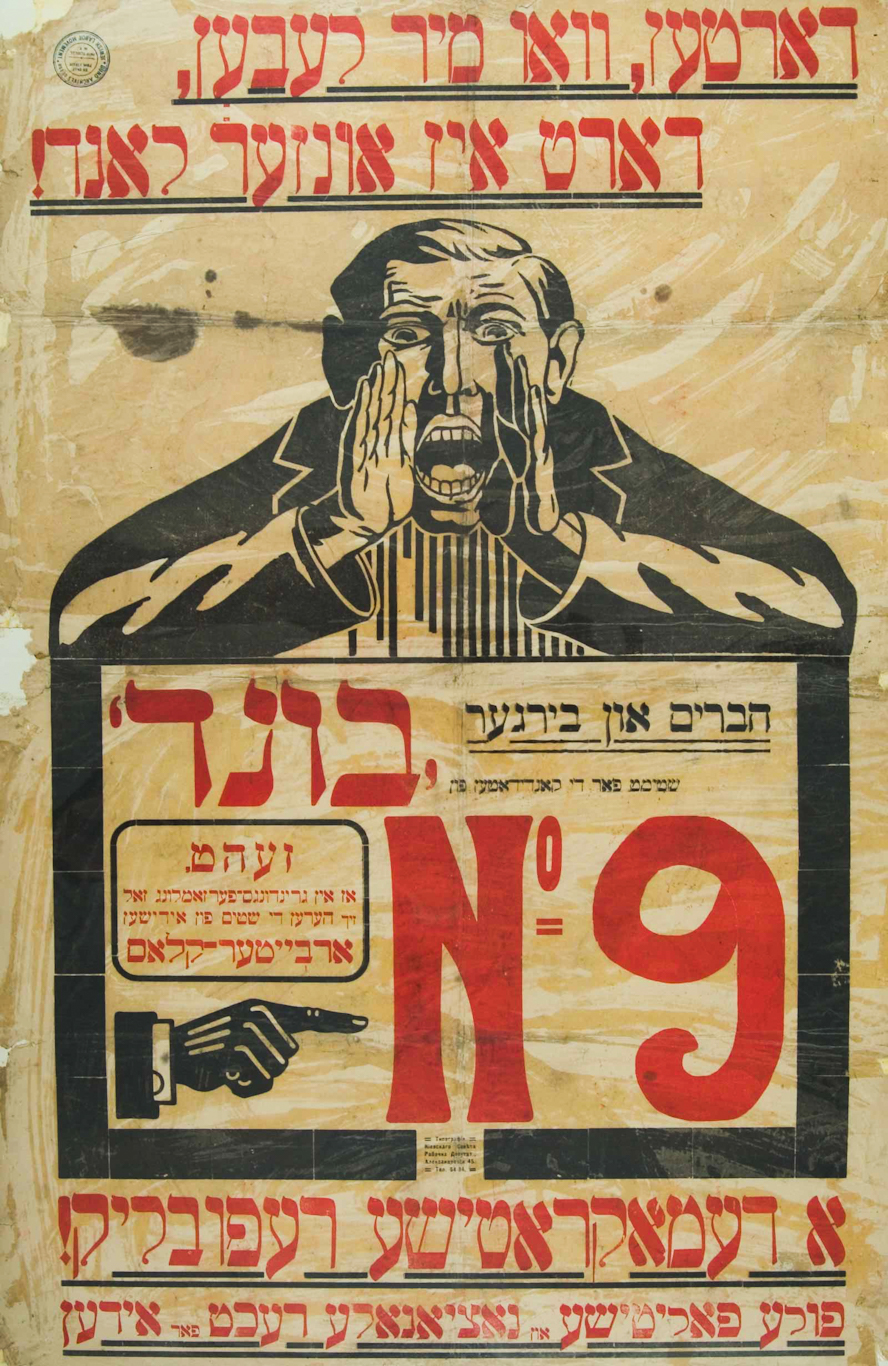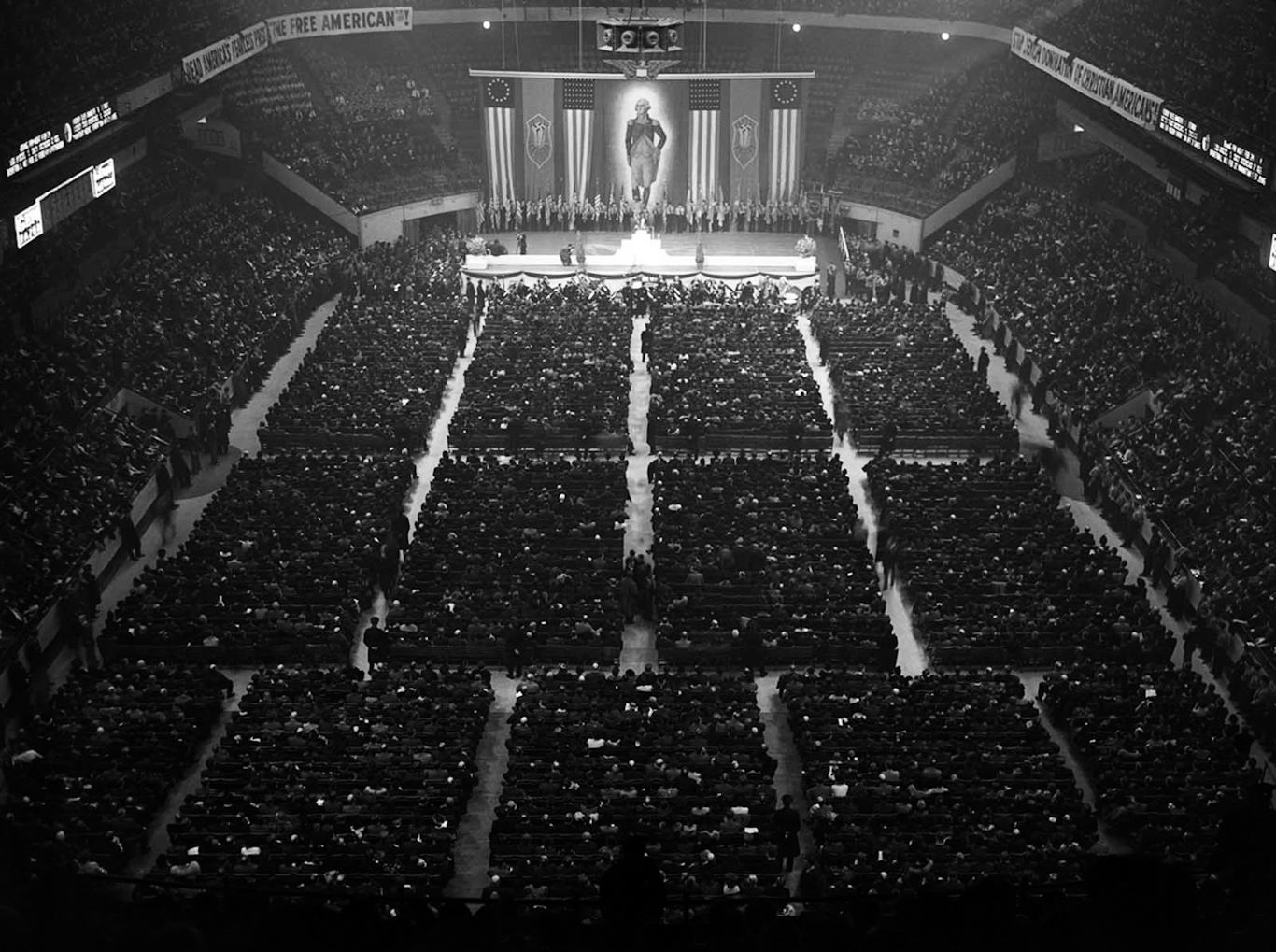From Judaism to Fascism: How Zionists Turned Their Backs on Their Own Culture
For the Zionists, the drive to climb the blood-soaked ladder of imperialism, to no longer be on the bottom rungs, shrouded not only their humanity but their own cultural teachings.
July 15th, 2021
WASHINGTON — In late June of this year, New Scientist blandly reported that the Israeli Defense Forces (IDF) had “used a swarm of small drones to locate, identify and attack Hamas militants,” the first documented case of a drone swarm being used in so-called combat.
In his book, “Exterminate All The Brutes,” Sven Lindqvist contextualizes Adolf Hitler’s atrocities in the imperialist violence of the nineteenth century, and in one chapter outlines how European artillery advancements gave colonizers both emotional and physical distance from the indigenous Africans they slaughtered. Europeans were an “invisible and unreachable opponent,” capable of being “victorious without even being present.” This can’t really be called combat, and indeed even Winston Churchill referred to it as “only a sporting element in a splendid game.” Combat was something gentlemen did and in the imperialist mindset, of course, the Africans were savages, barely even human.
There’s a thread that links this kind of “sport” from the atrocities in Africa to the Holocaust and now, so ironically, to the state of Israel.
Your Lebensraum, my Lebensraum
In the 1890s, a German zoologist named Friedrich Ratzel coined the term “Lebensraum,” which literally translates to living space. Those who have studied the Holocaust might be familiar with it as the Third Reich’s reasoning for invading Central and Eastern Europe. Well, this is where they got the idea. Besides the European Scramble for Africa, Ratzel had been inspired by his travels to North America, where he saw how white colonizers were taking land by force. Seeing this as a positive and indeed necessary transgression, Ratzel fashioned a brutal Darwinian ideology: in order to acquire sufficient Lebensraum, inferior races have to be displaced, which incidentally often means they will die and leave the space entirely. Sounds familiar, doesn’t it?
The whole concept of Zionism is that Jews need specific and exclusive Lebensraum. Therefore, others must be displaced. This displacement, far from being a negative or even cruel endeavor, merely proves the supremacy of the displacer, thereby proving the necessity of exterminating the displaced. As Lindqvist writes “during Hitler’s childhood, a major element in the European view of mankind was the conviction that ‘inferior races’ were by nature condemned to extinction; the true compassion of the superior races consisted in helping them on the way.”
During the Holocaust, Jews were an ‘inferior race.’ Today in Israel, Palestinians are an ‘inferior race.’ As reporter and The Electronic Intifada Associate Editor Nora Barrows-Friedman told me when I asked her how Zionists respond to Jewish teachings of solidarity with the oppressed: “When you talk to Zionists about Jewish teachings and how that relates to the Palestinians, they say ‘well we’re not oppressing them, they’re not even people,’” a line that could have easily been taken from Hitler himself. And when Adolf was still just a young lad in Austria, that same sub-human paradigm fueled the celebratory reports of European barbarity in Africa, as well as the U.S. and Canadian genocide of indigenous peoples in North America.

The word Jude (Jew) is scrawled on a Jewish-rub shop in Berlin following Nazi-incited mass riots in 1938. Photo | AP
It’s important to place Israel’s atrocities in historical context, for we can only know where we are by understanding where we’ve been. Hitler did not exist in an ideological vacuum. He simply looked around at the world he was born into and pulled from already existing ideologies, tried and true tactics. He was inspired by people like imperialist sycophant Ratzel, who was inspired by the U.S. Hitler too was a big fan of U.S. domestic policy, not least of all the Jim Crow laws that he simply repackaged into yellow fabric Stars of David. Even the concentration camp predates Hitler’s rise to power. The concept was originally used by Spaniards in Cuba then moved north to the U.S., then across the pond to England during the Boer War, and finally a hop and a skip down to Germany. And today, the U.S. carries on that tradition via the PR-polished “detention centers” for migrants.
Zionists were likewise inspired by their socio-political surroundings and, as Barrows-Friedman notes, “were explicit about their colonialist aims. In the original documents that Zionists drew up, they specifically say ‘this is a colonial project,’” she explains. “Everyone was doing the colonialism thing, and they [Zionists] wanted in on it.” This wasn’t about ‘going home.’ Yes, some Jews have always lived in the area now known as Israel, and there were plenty living there quite peacefully as Palestinians up until 1948. Jews have also lived almost everywhere else. We are not a people without a home; we are a people with many homes.
Zionism and supremacy: paying oppression forward
Indeed, this concept of borderless solidarity is something that has inspired many Jews to be active in liberation and justice movements. And while Zionism is packaged as the need for a safe space for Jews, it’s clear that this wasn’t about safety. There is no safety in terrorism. Rather, it was about supremacy. Having been shunned from so many communities for so long warped the perspectives of some Jews into believing that what they really needed wasn’t basic human rights but the right to thwart others’ basic human rights. The drive to climb the blood-soaked ladder of imperialism, to no longer be on the bottom rungs, shrouded not only their humanity but their own cultural teachings.
For those who haven’t had the pleasure of attending a Seder (you’re always welcome to my house for our anti-capitalist, anti-Zionist extravaganza!), the primary theme of the evening is “don’t be an oppressive asshole, for you know what it is to have assholes oppress you.” I’m paraphrasing, but that’s the basic gist. And Passover is just one example. Throughout Jewish traditions and teachings, the voices and experiences of the oppressed are uplifted in order to highlight the need for Jews to not just stand up for our own human rights, but for the human rights of all. We were exiled, we were driven out, we were genocided, we were persecuted just for being ourselves. Our place is therefore in the struggle for a world beyond those atrocities. None are free till all are free. To be Jewish is to be a fighter for liberation, for justice. As Barrows-Friedman explains, “the term ‘Never Again’ is not selective. It has to be universal.”
How Zionism is profoundly anti-Semitic
Zionism is therefore anti-Semitic — in both theory and practice. First and as noted above, it flies in the face of Jewish teachings and traditions. Second, it suggests that we only belong in one place — that we are not welcome in places that we have learned to call home, from New York to Shanghai. It pigeon-holes us into a homogeneous monolith, a singular stereotype. These points were the main drivers of the loud Jewish tradition of anti-Zionism. Again, inspired by teachings and experience, many Jews in early twentieth-century Europe were loud and proud leftists.
As John Merriman writes in his book “Ballad of the Anarchist Bandits,” a popular term for Jews in turn-of-the-20th-century Europe was “Cosmopolitan Anarchists.” Which I actually really love. These Jews were vehemently opposed to the ideas of imperialism, nationalism and colonialism — aspects they saw as intricately linked with any sort of Zionist endeavor. Furthermore, they didn’t like the idea of appeasing anti-Semites in Europe by just disappearing. As one early twentieth-century poster shared in a recent interview with scholar Benjamin Balthaser asserts, “Where we live, there is our country!” Yet, appeasing anti-Semites was a cornerstone of Zionism from the beginning. Theodore Herzl, known as the ‘father of modern political Zionism,’ wrote in his diaries that “[t]he anti-Semites will become our most dependable friends, the anti-Semitic countries our allies.” To quote my Jewish grandmother, “What a schmuck.”

A Yiddish poster reads: “There, where we live, there is our country! ” Credit | Jewish Labor Movement’s Bund Archives
It’s no wonder that Neo-Nazi Richard Spencer calls himself a “white Zionist.” And while Zionist-friendly media was quick to jump on the 2017 Israeli TV comment as totally misguided and a twisting of Zionism, the sad fact of the matter is that the Neo-Nazi got it right (not least of all because Israel is a very racist state, placing light-skinned Jews in higher positions of power while black Jews are considered to be just above Palestinians). Zionism is colonialism, it is imperialism, it is terrorism and apartheid — all things that Neo-Nazis, and original Nazis, hold in very high regard. Where both Zionists and their anti-Semitic pals get it so wrong is the conflation of Judaism with Zionism.
Zionism didn’t get rolling until the end of the nineteenth century and from the outset clearly pulled from imperialist, white-supremacist ideologies, not from Jewish traditions and teachings. Jews, on the other hand, have been around for roughly 6,000 years or so (it’s currently Year 5781 in the Jewish calendar). To conflate Judaism with Zionism is like conflating humanity with iPhones. It’s ahistorical and it paints a picture of Jews that fits rather too comfortably with old caricatures of the conniving Israelite.
And of course, this works out really well for the anti-Semites. I’ve gone to more than one Neo-Nazi rally where I’ve overheard fascists complain about Israel’s control over our government, our economy. “They control everything,” one guy in a MAGA hat loudly proclaimed. I assume the guy standing next to him agreed, as he was wearing a “Hitler Missed a Few” t-shirt. Now, if you’re a Zionist, you can’t disagree with him — because you feel that Israel = Judaism. The only way you can push back against this fascist dumbshittery is to starkly and resolutely separate Israel from Judaism.
Why Fascists love Zionists (and hate Jews)
Israel does have a disturbing stranglehold on our government — be it demands of loyalty from U.S. citizens, truckloads of arms and weapons, or the cozy relationship our police have with Israeli forces. Judaism does not. Indeed, Jews have a long history of not being welcome in the U.S., much like other immigrants, while fascism — well, that’s as American as apple pie. Hitler got plenty of ideas from the U.S. and a lot of people in the U.S. returned the favor.
In 1939, Madison Square Garden in New York City was filled with 20,000 Nazis sieg heiling a massive portrait of George Washington flanked by giant swastikas. In October of that year, the same organization that was behind the MSG event, the German American Bund, held a massive parade through the streets of New York. Two years earlier, nearly 1,000 Jewish refugees were turned away from both Canada and the U.S. and were forced to return to Europe just as the Nazi’s Final Solution was unfolding. Three years before that, the Wall Street-backed American Liberty League plotted to overthrow the government and install a fascist dictatorship. IBM, Coca-Cola, Kodak and other corporations found in Nazi Germany ready customers — and why let a speedbump like genocide stand in the way of a bottom line? Indeed, IBM didn’t just sell to the Nazis, they facilitated mass murder by supplying Nazi Germany with punched-card technology, making it possible to track the Jews — if you ever wondered why Jews in the Holocaust were tattooed with numbers. Thanks, IBM.

20,000 Americans attend a Nazi rally at Madison Square Garden, February 20, 1939.
Again, this historical context matters. We need to understand this history in order to see how events like Charlottesville in 2017 are far from unique or surprising. Rather, they’re part of a long history of American fascism — or, as Mussolini suggested fascism be called, corporatism. This history also shows us the vast disparities between Zionism and Judaism.
Reclaiming what Judaism has always been
Both ideologically and in lived experiences, Zionism and Judaism are at odds. They exist on opposite ends of the power dynamic spectrum. “We have to dismantle Zionism — the way we work to dismantle imperialism and white supremacy, and racism and patriarchy,” Barrows-Friedman says. “It’s all part of the same project. Israel is a project of exploitation of Jewish suffering to further an imperialist Western role.” Therefore, one of the main ways we do this, she says, is to “reclaim what Judaism has always been, going toward Jewish tradition as open and proud anti-Zionists.”
This means taking back our history, and our present as Jewish people. It means highlighting the twisted use of Jewish suffering to claim an inalienable right to oppress. It means taking our place on the side of the oppressed, never the oppressor. Here, less than a century after the Holocaust, Israel has proven that it too can be fascist. To whose glory? What have we Jews gained by Israel’s appeal to fascist ideologies?
Furthermore, why desperately try to affirm your humanity by following a fascist’s description of your lack thereof? Because of course, it won’t ultimately matter. Inferiority is an always-moving target. It always has been — be they the Irish under British terror, the Congolese under Belgian terror, the Indigenous and African-Americans under U.S. terror, Jews in the Holocaust, or today’s War on Terror, any and every people, culture, tradition and belief can be marred and maligned in order to fit the needs of oppression. Jews will never gain peace and safety through terrorism. We will find no supremacy on the other side of brutality. We will always be inferior to the fascist. The question is why then is it so important for Zionists to appeal to fascists?
As Frantz Fanon wrote, “The oppressed will always believe the worst about themselves.” In the case of Zionists, this must be true. They must have believed that they were inferior because they were a “landless people,” just like the imperialists said of Africans; or indeed as Francis Bacon wrote of his perceived “monsters” in the 1600s, that they were mere “swarms of people” who were unavowed by God. They must have believed that they were inferior, weak. It is not uncommon to hear a Zionist talk of the “weak Jews” in the concentration camps who should’ve fought back against their captors. And if you accept that you are inferior based on the claims of the oppressor, the only way to rectify that is to become like the one who oppresses you. Of course, in the process, you will lose yourself. You will lose all that it is to be human. You will become the sick and grotesque creation of your new master — a hideous fascist Frankenstein — and still the inferior.
Fanon also wrote about the colonization that colonizers impose on themselves — the violence that they inflict that is also inflicted upon them. Joseph Conrad, the author of “Heart of Darkness,” wrote graphically of this concept in his first short story, “An Outpost of Progress,” a story of two Europeans who are stationed at an outpost in the jungles of Africa in the 1890s. They gradually lose their minds, and the story ends in a murder-suicide, with Kayerts, one of the European men, hanging from a cross above his predecessor’s grave:
Progress was calling to Kayerts from the river. Progress and civilization and all the virtues. Society was calling to its accomplished child to come, to be taken care of, to be instructed, to be judged, to be condemned; it called him to return to that rubbish heap from which he had wandered away, so that justice could be done.
As Lindqvist writes, these characters represent a European identity, a “[p]rogress that presupposes genocide.”
There is no glory in the oppressed becoming the oppressor. We who are of European descent must grapple with our genocidal history, unpack what horrors have been passed down from colonizers, and confront that trauma. We must confront that history that has become our present, as children of this Empire, so that we may stop it from becoming the future. And as Jews, we must grapple with Israel’s present for the very same reasons.

A Jewish activist protests Israeli apartheid, in north Jersey. Screenshot | NorthJersery.com
As James Baldwin explained in a 1963 interview:
What white people have to do, is to try to find out in their own hearts why it was necessary to have a nigger in the first place, because I’m not a nigger, I’m a man, but if you think I’m a nigger, it means you need it. Why?”
Zionists need it because they seek to emulate their own oppressors. Someone must replace the Jew in their shitty remake. For they do not wish to be the Jew any longer. As reporter and host, Jacquie Luqman said recently on By Any Means Necessary: “If anybody in the Black community is supporting anybody else in our community who preys on other people, then those people are not our people.” Zionists are not our people.
“I like being Jewish. I really hate the way it’s been co-opted,” Barrows-Friedman explains. “The beauty of Jewish culture is the tradition, the stories, the songs, the education about no one is free if anyone’s oppressed. Zionism cannot dictate how we are Jews. We can’t let them win.”
As Jews, we stand with the oppressed — that is what our own history and our teachings demand. We must bring forward the past because, to yet again quote Baldwin, “history is not the past, it is the present.” We should be proud of our heritage, proud of our culture and the thick bonds of solidarity that bolster our fight and inspire our build.
To be proud to be Jewish is a good thing, so long as we don’t lose sight of what that means. We have a lot of work to do, and the enemies we face will claim to want the same things that we do, to believe in the same teachings we believe in. The fight against Zionism is deeply personal for many Jews, but it is a part of the vital, all-embracing work of dismantling colonialism — in our own communities and likewise in the world. As Simone de Beauvoir wrote, “A freedom that is interested only in denying freedom must be denied.” For the sake of our liberation as Jews — as human beings — we must deny Zionism. In short: Be Jewish. Be proud. Be anti-Zionist.









